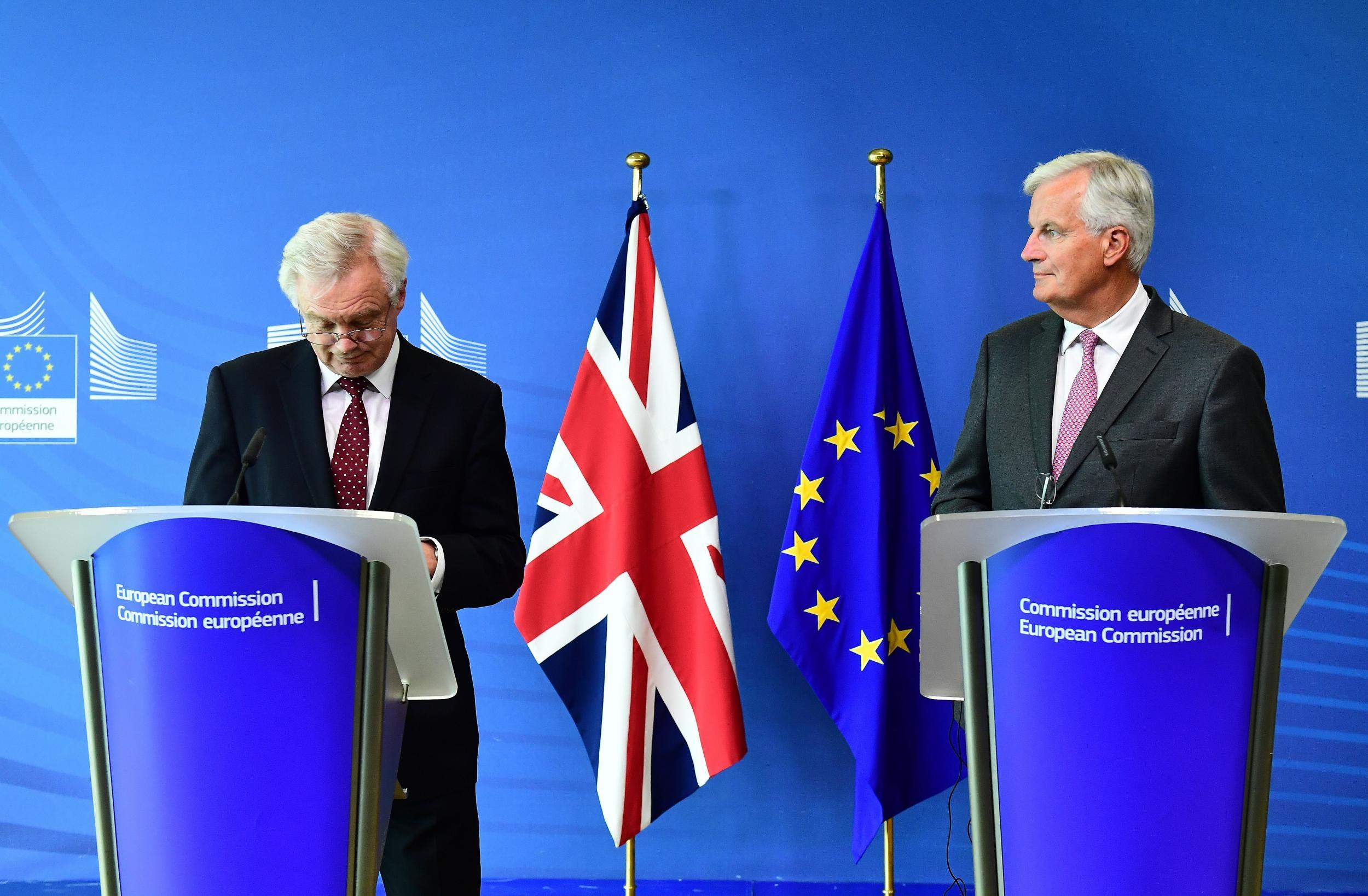Your support helps us to tell the story
From reproductive rights to climate change to Big Tech, The Independent is on the ground when the story is developing. Whether it's investigating the financials of Elon Musk's pro-Trump PAC or producing our latest documentary, 'The A Word', which shines a light on the American women fighting for reproductive rights, we know how important it is to parse out the facts from the messaging.
At such a critical moment in US history, we need reporters on the ground. Your donation allows us to keep sending journalists to speak to both sides of the story.
The Independent is trusted by Americans across the entire political spectrum. And unlike many other quality news outlets, we choose not to lock Americans out of our reporting and analysis with paywalls. We believe quality journalism should be available to everyone, paid for by those who can afford it.
Your support makes all the difference.The European Union's chief Brexit negotiator has said he is "concerned" at "ambiguity" in the UK's approach to secession talks and called on Britain to start "negotiating seriously".
At a press conference in Brussels to mark the start of the third round of Article 50 talks Michel Barnier said it was impossible to make serious progress on negotiating the UK's exit from the EU while the British position lacked detail.
The UK Government has spent the last month issuing "position papers" laying out the British position on certain Brexit issues – but some issues, including the question of the so-called "divorce bill" for leaving, have been notable by their omission so far.
"To be honest I am concerned. Time passes quickly. I welcome the UK government's papers, and we have read them very carefully, very carefully," Mr Barnier told reporters in Brussels.
"But we need UK positions on all separation issues. This is necessary to make sufficient progress. We must start negotiating seriously.
"We need UK papers that are clear in order to have constructive negotiations and the sooner we remove the ambiguity, the sooner we will be in a position to discuss the future relationship and the transitional period."
He asserted that the EU 27 countries and the EU's institutions stood "united" in that they would "not accept that the separation issues are not addressed properly".
Mr Barnier added that he was "ready to intensify negotiations over the coming weeks in order to advance".
David Davis, the UK's Brexit Secretary, by contrast said he wanted to see "flexibility and imagination on both sides" – a line his Department for Exiting the European Union has previously used.
"Our goal remains the same: we want to agree a deal that works in the best interests for both the European Union and the United Kingdom and people and businesses right across Europe. We're ready to roll up our sleeves and get back to work once more," he said.
Defending the UK's position papers, the minister said they were the product of "hard work and detailed thinking that has been going on behind the scenes" for the last year.
Like Britain, the EU's position papers have omitted some areas, including Ireland, data protection, or customs arrangements. The EU says this is because wants to focus on the issues of the separation before it addresses its future relationship with the UK. Northern Ireland – one of the omitted area – will be discussed in the round of negotiations this week, however.
Speaking two weeks ago Mr Davis himself had described the inscrutable parts of the UK position as "constructive ambiguity".
British and EU negotiators will now sit down for three days of talks, with the next public update on progress due on Thursday. The topics covered include citizens rights, the financial settlement, and the Northern Ireland border.

Join our commenting forum
Join thought-provoking conversations, follow other Independent readers and see their replies
Comments